




Copyright 2012 by Nigel G Wilcox All Rights reserved E-Mail: ngwilcox@gmx.co.uk
The Roman Empire - The Death of Rome



Powered By Sispro1
Roman MENU
Copyright All Rights Reserved by Nigel G Wilcox E-Mail: ngwilcox100@gmail.com
Designed by Nigel G Wilcox
The Paragon Of Metal Detecting
& Archaeology
& Archaeology
5. Menu
Pages
Member NCMD
The Biggest Reasons The Roman Empire Fell
Giovanni Dall'Orto., Wikimedia Commons
Division Of Labour >
The thing about empires is that they can be pretty big and hard to manage. So the Emperor Aurelian had barely reassembled the squabbling pieces of the Empire in 274 when a successor, Diocletian, formally split the empire into Western and Eastern divisions in 293.
The thing about empires is that they can be pretty big and hard to manage. So the Emperor Aurelian had barely reassembled the squabbling pieces of the Empire in 274 when a successor, Diocletian, formally split the empire into Western and Eastern divisions in 293.
Bernard Gagnon, CC BY-SA 3.0, Wikimedia Commons
< Conflicting Motives
But a relatively weak Western Empire had trouble on two fronts. First, it had to control existing populations who resented occupation. Then it had to deal with waves of refugees coming in from the east, pushed westward by the advancing Huns or others that the Empire had previously pushed forward.
But a relatively weak Western Empire had trouble on two fronts. First, it had to control existing populations who resented occupation. Then it had to deal with waves of refugees coming in from the east, pushed westward by the advancing Huns or others that the Empire had previously pushed forward.
Ulpiano Checa, Wikimedia Commons
No PR Campaign >
Interestingly, victors usually get to write the history books, but the Huns couldn t be bothered. Starting off in Mongolia, they galloped their way to Europe, with a fearsome reputation for inflicting great bloodshed. But Attila and company didn t care to justify themselves.
Interestingly, victors usually get to write the history books, but the Huns couldn t be bothered. Starting off in Mongolia, they galloped their way to Europe, with a fearsome reputation for inflicting great bloodshed. But Attila and company didn t care to justify themselves.
Petar Milo evic, CC BY-SA 4.0, Wikimedia Commons
< Eastern Overtime
It s also notable that the Eastern Roman Empire had lots of problems, eventually falling to the Ottoman Empire in 1453. But the Byzantine Empire (as it was rebranded) lasted a whole lot longer than the Western Roman Empire, and dominated the region for centuries.
It s also notable that the Eastern Roman Empire had lots of problems, eventually falling to the Ottoman Empire in 1453. But the Byzantine Empire (as it was rebranded) lasted a whole lot longer than the Western Roman Empire, and dominated the region for centuries.
Jamie Heath, CC BY-SA 2.0, Wikimedia Commons
Guarding The Guards >
Certainly, Rome was plagued by a lot of lousy emperors. Succession was complicated, with emperors usually dispatched by rivals. Making things worse, the Praetorian Guard, tasked with being the Emperor s bodyguards, sometimes stepped outside their brief and deposed the existing one.
Certainly, Rome was plagued by a lot of lousy emperors. Succession was complicated, with emperors usually dispatched by rivals. Making things worse, the Praetorian Guard, tasked with being the Emperor s bodyguards, sometimes stepped outside their brief and deposed the existing one.
Henryk Siemiradzki, Wikimedia Commons
< Cause For Alarm
Surprise was the watchword. After the notorious Emperor Nero s demise in a revolt, Rome counted four emperors in the year 69 CE: Galba, Otho, Vitellius, and Vespasian. The first three met violent ends. Unusually for an emperor, Vespasian retired voluntarily, dying of natural causes.
Surprise was the watchword. After the notorious Emperor Nero s demise in a revolt, Rome counted four emperors in the year 69 CE: Galba, Otho, Vitellius, and Vespasian. The first three met violent ends. Unusually for an emperor, Vespasian retired voluntarily, dying of natural causes.
Diego Delso, CC BY-SA 4.0, Wikimedia Commons
A Chill Wind >
It wasn t just the political climate that was perilous. The Mediterranean region had been unusually warm from 200 BCE to 150 CE, then cooled off, and really cooled off after 450. Farming became a challenge and infantry harder to keep on as the weather turned miserable.
It wasn t just the political climate that was perilous. The Mediterranean region had been unusually warm from 200 BCE to 150 CE, then cooled off, and really cooled off after 450. Farming became a challenge and infantry harder to keep on as the weather turned miserable.
< High-Pressure System
Climate change may also have helped drive the Huns westward, producing a domino effect that pushed other groups to flee toward the Empire s borders. And all that trade could bring new diseases, such as the Antonine Plague that may have felled a tenth of the Empire s population.
Climate change may also have helped drive the Huns westward, producing a domino effect that pushed other groups to flee toward the Empire s borders. And all that trade could bring new diseases, such as the Antonine Plague that may have felled a tenth of the Empire s population.
Lawrence Alma-Tadema, Wikimedia Commons
Budget Stretching >
At its peak, the Roman Empire stretched from the Atlantic to the Persian Gulf, an impressively big area with an impressively big budget. But big problems such as the Sassanid Empire in the east, internal conflicts at home, various plagues, and Germanic invasions drained coffers.
At its peak, the Roman Empire stretched from the Atlantic to the Persian Gulf, an impressively big area with an impressively big budget. But big problems such as the Sassanid Empire in the east, internal conflicts at home, various plagues, and Germanic invasions drained coffers.
Unknown Artist, Wikimedia Commons
< Long Red Tape
Increasing the bureaucracy helped ensure enough money to spend on defense, but centralized planning and higher taxes made it harder for Roman merchants to thrive. And in a big empire, the Emperor could be out of touch, with intermediaries paying for influence in distant realms.
Increasing the bureaucracy helped ensure enough money to spend on defense, but centralized planning and higher taxes made it harder for Roman merchants to thrive. And in a big empire, the Emperor could be out of touch, with intermediaries paying for influence in distant realms.
Diego Delso, CC BY-SA 4.0, Wikimedia Commons
Not So Proud >
Many elite families paid little tax, increasing the gap between rich and poor, fueling resentment. As civic pride went down, so likely did recruitment among Roman citizens. To fill the gaps, leaders turned to barbarian recruits who might feel little allegiance to the Empire.
Many elite families paid little tax, increasing the gap between rich and poor, fueling resentment. As civic pride went down, so likely did recruitment among Roman citizens. To fill the gaps, leaders turned to barbarian recruits who might feel little allegiance to the Empire.
Benh LIEU SONG, CC BY-SA 3.0, Wikipedia
< Down The Drain
And despite its technological achievements, the Roman Empire suffered from pretty basic problems. Impressive aqueducts couldn t guarantee cleanliness, especially if sewage ran down open drains. And all the fountains in Rome likely boosted the rate of water-borne malaria.
And despite its technological achievements, the Roman Empire suffered from pretty basic problems. Impressive aqueducts couldn t guarantee cleanliness, especially if sewage ran down open drains. And all the fountains in Rome likely boosted the rate of water-borne malaria.
Raphael, Wikimedia Commons
A Powerful Force >
Getting back to historian Edward Gibbon, his theories have been influential, but also controversial. He saw the rising power of Christianity as a force that weakened Roman institutions and traditions. As an 18th-century English intellectual, Gibbon was hostile to Catholicism and the influence of priests.
Getting back to historian Edward Gibbon, his theories have been influential, but also controversial. He saw the rising power of Christianity as a force that weakened Roman institutions and traditions. As an 18th-century English intellectual, Gibbon was hostile to Catholicism and the influence of priests.
Lin Gaozhi, CC BY-SA 4.0, Wikimedia Commons
< A Complex Argument
But a strong argument can be made that pagan institutions, not Christianity, had weakened the Roman budget. Pagan temples and complexes drained government funds, with religious personnel maybe reaching half the size of the army, hence reducing the pool of recruits.
But a strong argument can be made that pagan institutions, not Christianity, had weakened the Roman budget. Pagan temples and complexes drained government funds, with religious personnel maybe reaching half the size of the army, hence reducing the pool of recruits.
Sailko, CC BY-SA 3.0, Wikimedia Commons
Hard To Judge >
And defense issues had little to do with Christianity. Favoritism and corruption may have gone up in the fourth century, yet the Empire still seemed able to mount defenses. However, starting to billet recruits or to pay them with land may have reduced discipline and readiness.
And defense issues had little to do with Christianity. Favoritism and corruption may have gone up in the fourth century, yet the Empire still seemed able to mount defenses. However, starting to billet recruits or to pay them with land may have reduced discipline and readiness.
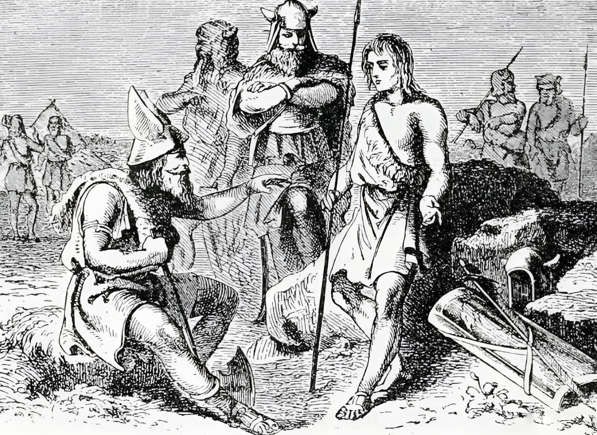
©Ivan Dmitrievich Sytin, Picryl
< Digging Deeper
While we could say the Roman Empire fell because it kept losing land, is that a good explanation—or just a description of what happened? And if that’s kind of like saying Rome fell because it lost, then we have to ask: Why did it keep losing? And what’s this about two Emperors and two Empires? How did that happen?
While we could say the Roman Empire fell because it kept losing land, is that a good explanation—or just a description of what happened? And if that’s kind of like saying Rome fell because it lost, then we have to ask: Why did it keep losing? And what’s this about two Emperors and two Empires? How did that happen?
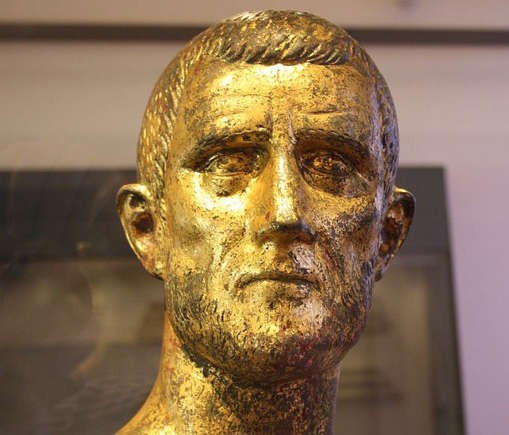
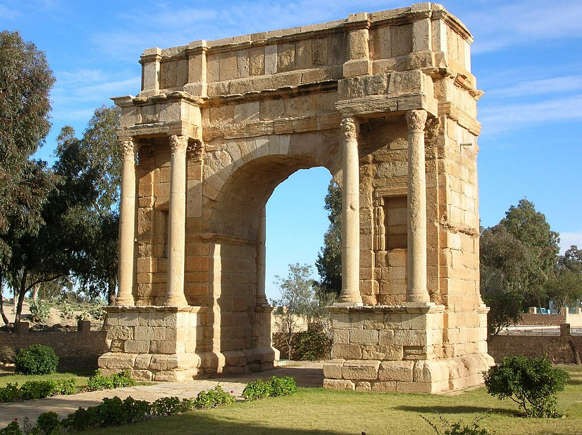
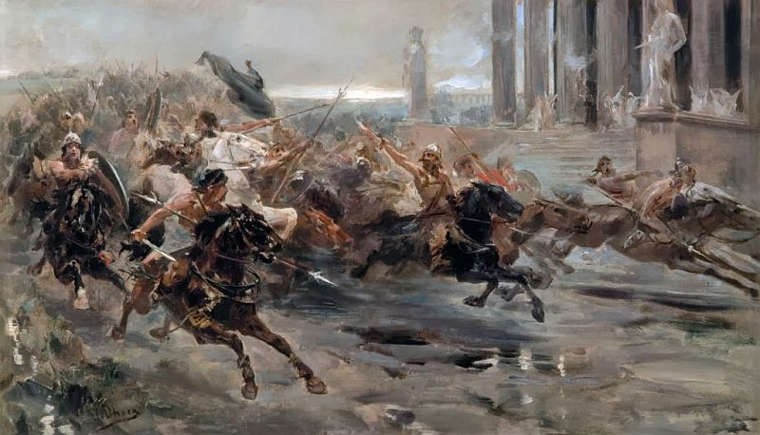
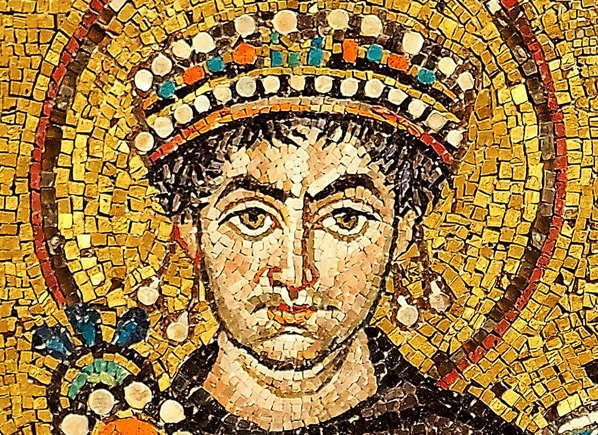
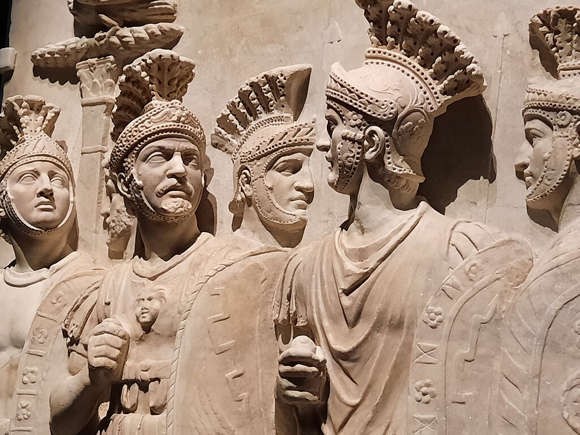
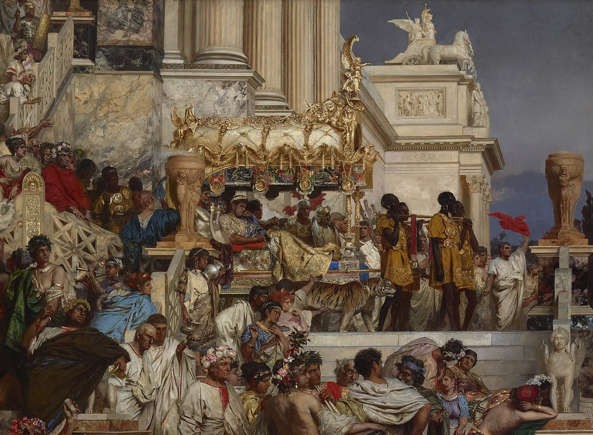
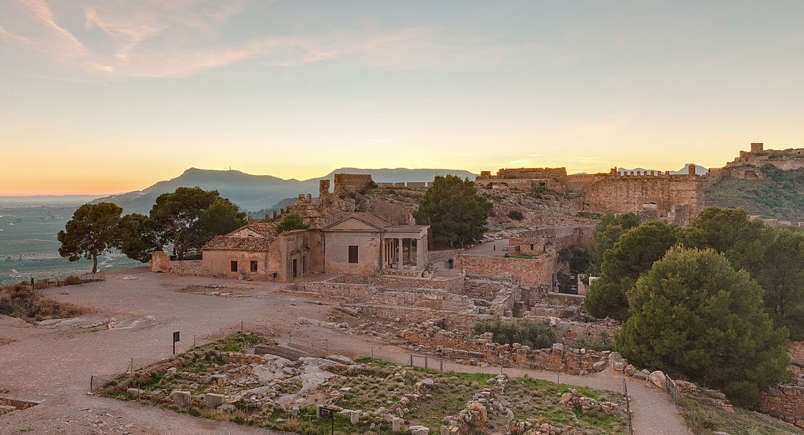
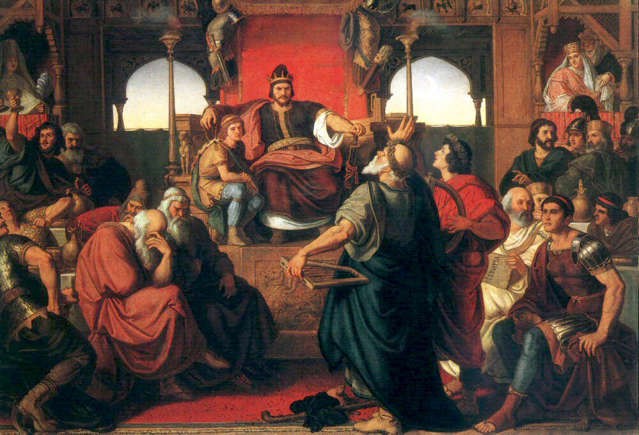
©Mór Than, Wikimedia Commons
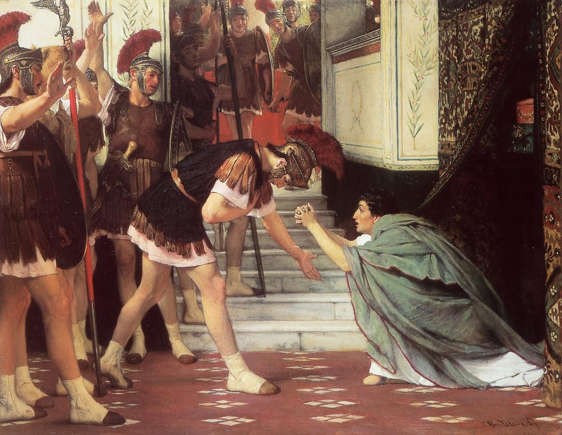
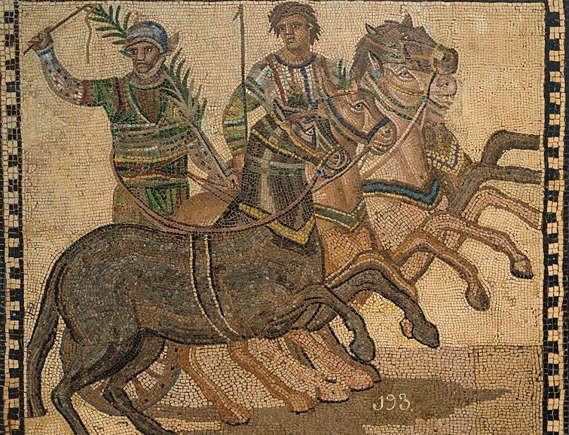
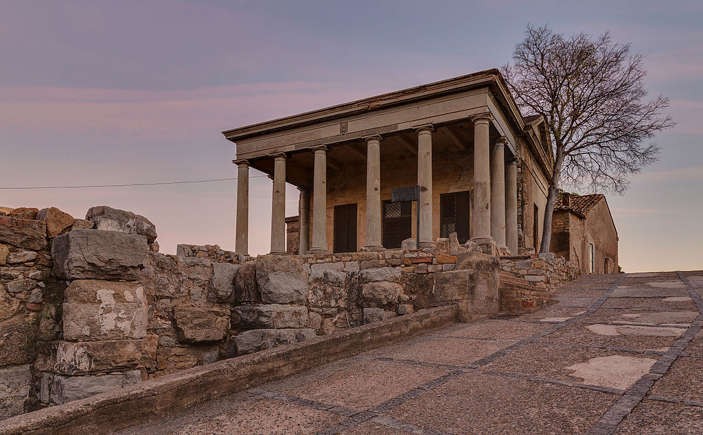
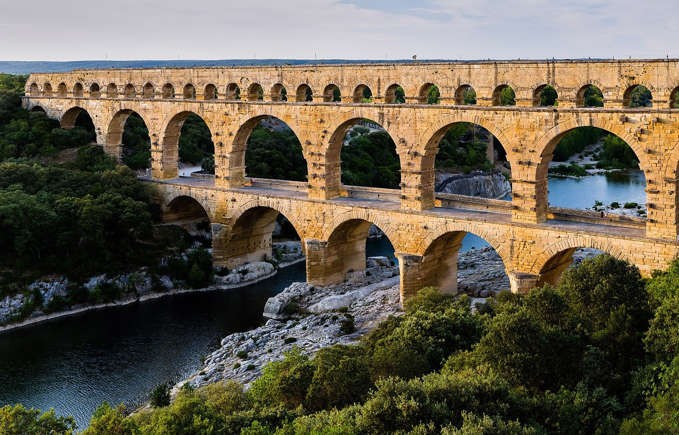
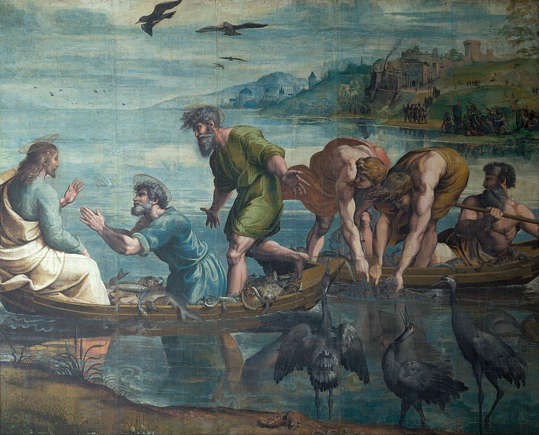
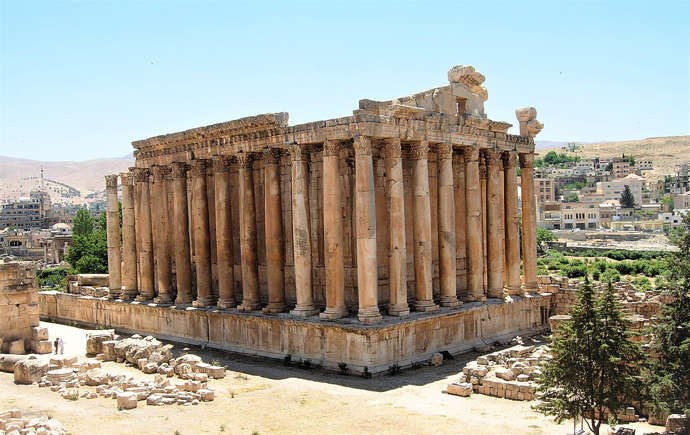

Continued....>




















